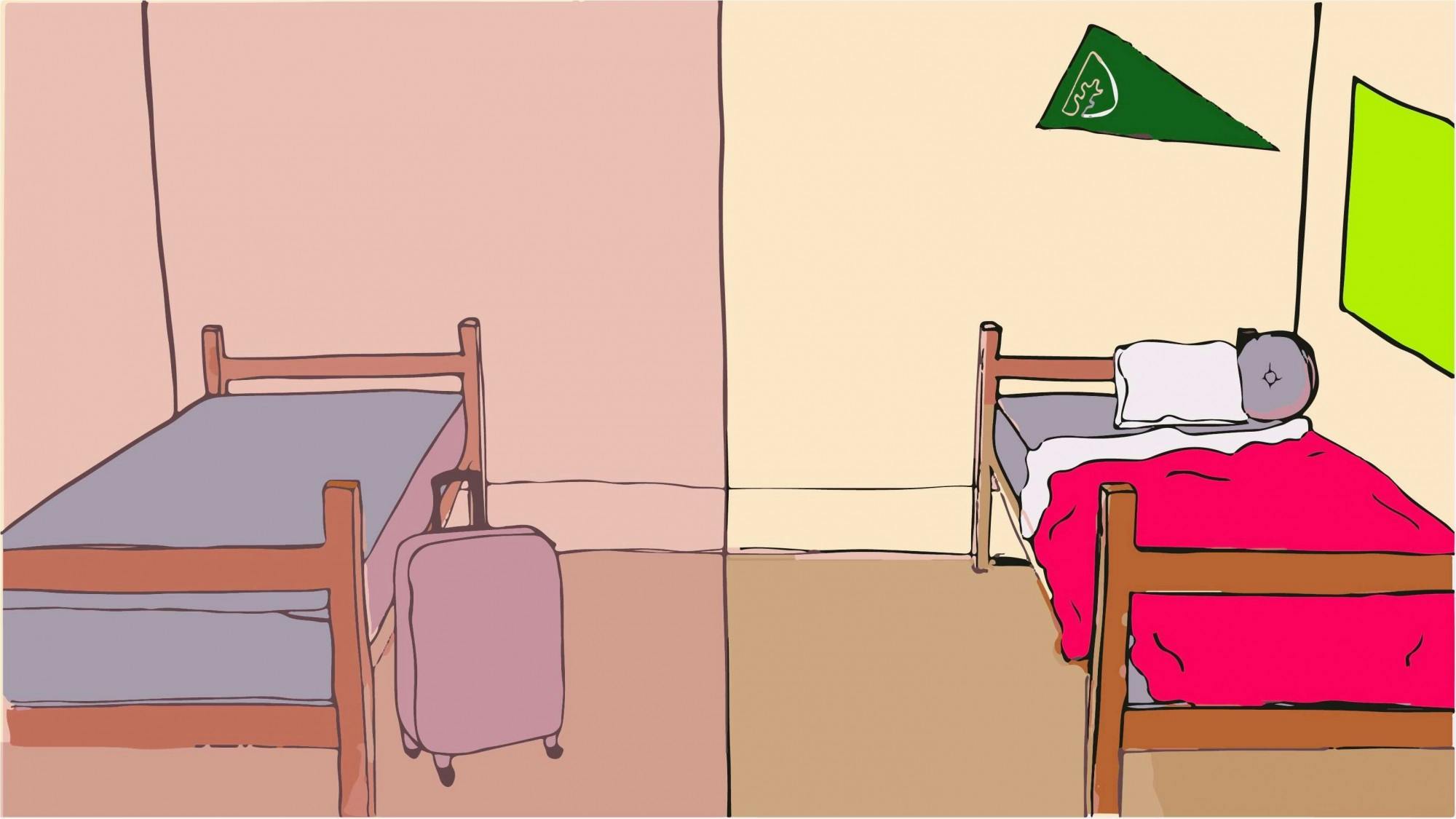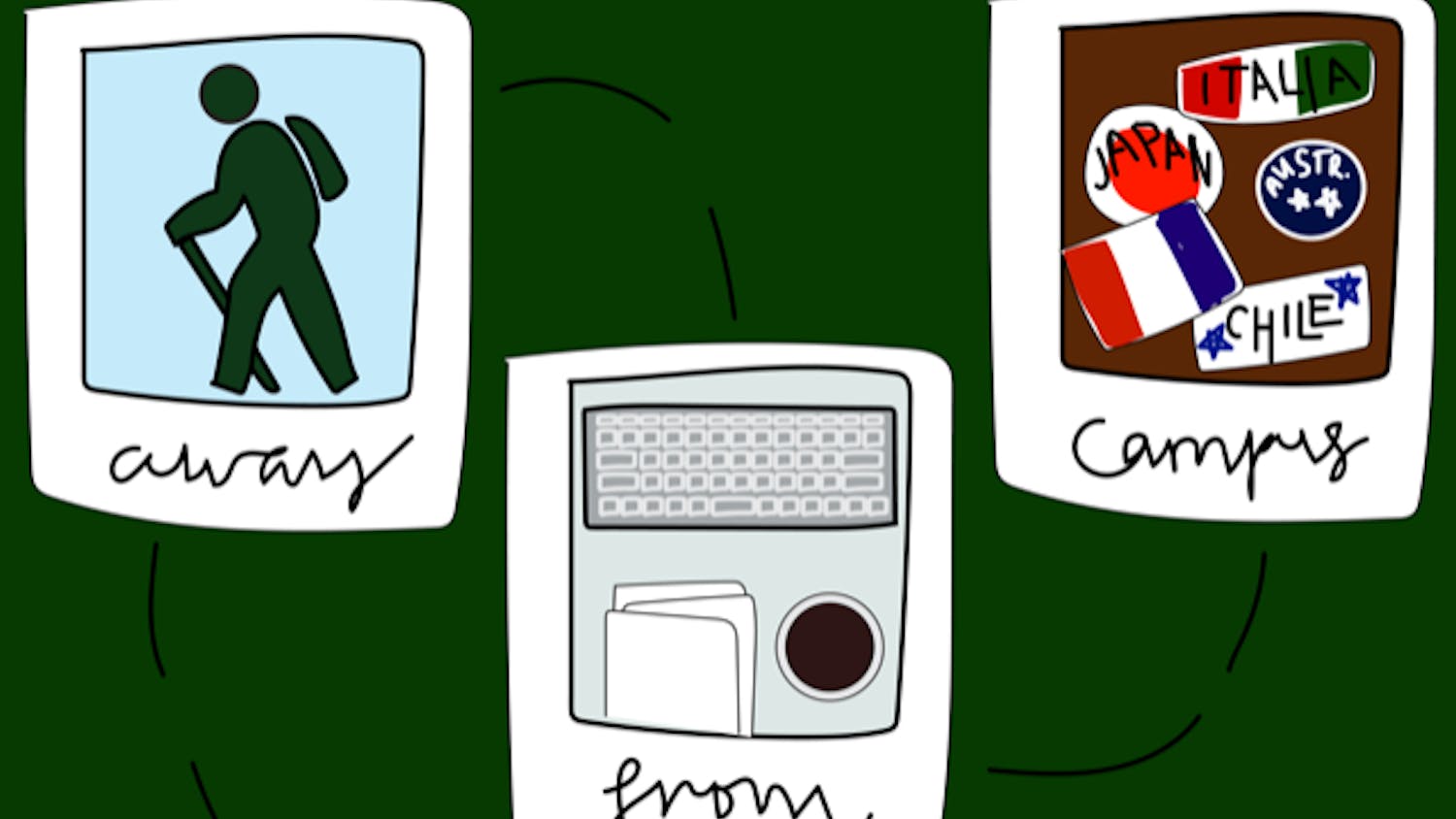Over the past two weeks, more than 100 students tested positive for COVID-19, and hundreds were quarantined after suspected exposures. As the College reentered lockdown, outdoor activities ground to a halt, and the plunge in campus morale was palpable.
Students received a flood of emails from the administration full of sterile reprimands and calls for cooperation with containment efforts. We also received a more recent email refusing student pleas for expanded non-recording and pass/fail options.
While my inbox filled up with emails, many of my peers and friends sat in isolation. The first warm days of winter term were, for many, just another day of being trapped inside.
For some, spending 10 days in total isolation isn’t a huge deal. For others, it’s debilitating. Either way, isolated students’ stories are something the email blasts don’t cover, so I made it my goal to interview students about their experiences in COVID-19 housing.
For Jesse Brownell ’23, isolation began with a phone call and the choice to leave her off-campus house in order to keep her roommates safe.
“Once I tested positive, I got a call from one of the sport medicine guys because I’m an athlete,” Brownell said. “I drove from my off-campus house with my car and parked outside the Lodge —I basically gathered all my stuff for 10 days up in about an hour.”
Hanna Davis ’23, who spent her isolation in the former Sigma Phi Epsilon house (now home to the Thought Project Living Learning Community) described her journey to the dormitory on Webster Avenue.
“I woke up Sunday morning to an email from Dick’s House telling me to call them ASAP,” Davis said. “They picked me up in a van — and the guy that helped transport me was the sweetest man ever. When I got there, there were already a lot of people there — I think SigEp was pretty much full.”
Davis said that while transitioning to life in isolation the first few days was a bit difficult, it eventually just felt like living in a normal residence hall with a shared kitchen and bathroom.
Alayna Kasuri ’22, who lived in isolation housing in the Lodge, also had a relatively positive experience.
“My experience at the Lodge was fine. I appreciated the really big windows because there was a lot of light,” Kasuri said.
However, Kasuri admitted that she is different from some of her peers in that she doesn’t mind being alone. While she never felt extremely lonely during her time in quarantine, she mentioned that she lost motivation to complete her schoolwork.
For more extroverted students, the isolation felt much more claustrophobic.
“A lot of people assume that it’s just 10 days in this room, but I don’t think people really understand how much empty time there is in a day,” Brownell said. “... When you’re here, it’s just you and your thoughts, alone. Every day feels increasingly long. I think if you’re not in isolation, you can’t really understand how mentally taxing that can be or how long it feels.”
Meal time, unfortunately, didn’t seem to offer isolated students much of a mood boost.
According to Davis, while her numerous allergies made eating Dartmouth-provided food more challenging, she was generally content. And if she didn’t want to eat Dartmouth Dining’s food, Davis said would order from restaurants in town and get food delivered to the door.
Kasuri also noted less-than-stellar dining experiences.
“The food wasn’t good — I would say I ate like 50% of my meals. I was worried every day about losing my taste. Every night I was like, if this is my last meal with taste, I might as well have food that tastes like something,” Kasuri said.
However, mixed up food orders were far from the most significant challenge facing isolated students. Despite the efforts of professors to accommodate students hit by the outbreak, Kasuri and Brownell both felt the weight of looming deadlines.
“There were a few days when my headaches were really, really bad and I could not look at a screen, so [my professors] were really good in that sense,” Kasuri said. “But I also didn’t want to push it because I knew that when I got out, then finals would be approaching, and I didn’t want to have everything piled up.”
For Brownell, the anxiety of being sick and the lack of company made academic stress much worse.
“It’s really no easy thing to pack up your stuff for 10 days, not knowing what sort of illness you’re going to contract in the next few days — considering it’s killed 500,000 Americans — and continue to perform academics at an Ivy League level,” Brownell said. “I think I’ve realized the extent to which being a student is a full-time job, and one that I was not mentally or physically capable of completing. The way in which this made me feel so inadequate for a couple of days was really devastating.”
For many students, the hardest part of spending 10 days in isolation might be that it doesn’t instantly return to normal.
Kasuri, who is back in her sorority house, expressed that she is worried about being in the tiny percent of cases that stays contagious after 10 days.
Brownell, meanwhile, cited the lasting damage of the intense anxiety, stress and loneliness of quarantine.
“I think I’m going to walk out of here with a different view of my Dartmouth experience, maybe. Up to this moment, I’ve been lucky enough that it’s been mostly blissful,” Brownell said. “I’ve just had so much time alone with my thoughts here, and I honestly think that it’ll forever be a stain on my college experience — the way I’ve felt for these past 10 days.”
For many Dartmouth students, the past two weeks have made the College’s institutional priorities clear.
“I feel like as an institution, our health and safety should come before academics always,” Brownell said. “People will say that health comes first, but the deadlines are still there.”
Caris is a '23 from Long Beach, CA and is majoring in religion modified with art history. When not editing stories for the Mirror, you can find her playing club soccer, snowboarding at the Skiway or sipping coffee in Sherman Art Library. After college, she plans on attending graduate school in religion.




